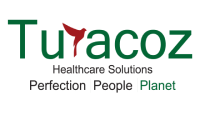In the digital age, where the internet serves as a primary source of information, medical writers face a dual challenge: providing accurate, valuable content and ensuring it reaches those who seek it amidst the vast sea of online information. From patients grappling with unfamiliar symptoms to healthcare professionals seeking the latest research findings, the quest for medical knowledge often begins with a search engine query. However, amidst the abundance of content available online, discerning credible sources from misinformation can be a daunting task. For medical writers, this presents a profound opportunity to not only educate, empower, and engage audiences worldwide but also to overcome the hurdles of information overload and skepticism.
So to stay abreast with this navigating digital landscape of medical content creation, writers must adopt a multifaceted approach that combines medical expertise with savvy SEO strategies. By understanding their audience’s needs, conducting thorough keyword research, and optimizing their content for search engines, medical writers can not only enhance the discoverability of their content but also establish themselves as trusted authorities in their respective fields. In the following sections, we’ll delve into actionable steps that medical writers can take to create compelling, search-friendly content that resonates with their audience and ranks prominently on search engines.
Understanding Your Audience:
The cornerstone of effective communication lies in understanding your audience—their needs, concerns, and knowledge levels. Are you addressing patients navigating complex diagnoses, caregivers seeking support, or clinicians seeking evidence-based insights? Tailoring your content to resonate with your audience fosters trust, fosters engagement, and fosters impact.
- Patient-Centric Approach: Patients seek clear, empathetic information to understand their condition and treatment options. Provide actionable advice in layman’s terms to empower patients in their healthcare journey.
- Caregiver Support: Caregivers require practical advice and emotional support. Offer resources to help them navigate their role effectively, addressing their unique challenges and providing self-care tips.
- Clinician Engagement: Healthcare professionals rely on evidence-based information to inform their practice. Deliver comprehensive insights and practical recommendations to support clinicians, fostering collaboration and knowledge exchange.
- Personalization and Empowerment: Recognize the diverse needs within your audience and offer personalized content recommendations. Empower individuals to explore topics of interest at their own pace, driving meaningful engagement.
By tailoring your content to the specific needs and preferences of your audience, you create meaningful connections and drive positive outcomes.
Delve Deeper:
Conduct surveys, interviews, or focus groups to gain insights into your audience’s preferences, challenges, and information-seeking behaviors. Use analytics tools to track user engagement and behavior on your website. By understanding your audience’s demographics, psychographics, and search habits, you can create content that speaks directly to their needs and interests.
Keyword Research:
Keywords serve as the bridge between your content and your audience’s queries. Conducting thorough keyword research unveils the language and topics your audience is actively seeking. Beyond generic terms, explore long-tail keywords that encapsulate specific questions and intents. By aligning your content with these keywords, you not only attract traffic but also provide targeted, relevant solutions to your audience’s queries.
Utilize Semantic SEO:
In addition to traditional keyword research, leverage semantic SEO techniques to uncover related terms and concepts. Tools like LSIGraph or Google’s related searches can help you identify semantic keywords to include in your content naturally. By covering a broader spectrum of relevant topics, you enhance the comprehensiveness and relevance of your content, improving its chances of ranking well on search engines.
Creating High-Quality Content:
In the realm of medical writing, accuracy, and credibility reign supreme. Your content serves as a beacon of knowledge in a sea of information. Ensure meticulous research, drawing from esteemed sources such as peer-reviewed journals, academic institutions, and renowned medical organizations. Strive not only to inform but also to empower, debunking myths, clarifying misconceptions, and guiding your audience towards informed decisions.
Embrace Content Variety:
Explore different content formats to cater to diverse learning preferences and consumption habits. In addition to traditional articles, consider creating videos, podcasts, infographics, or interactive tools to present information in engaging and accessible ways. By diversifying your content portfolio, you appeal to a broader audience and enhance your website’s overall visibility and authority.
Optimizing On-Page SEO:
Effective SEO transcends keyword density—it’s about optimizing every facet of your content to enhance visibility and accessibility. Craft compelling meta descriptions that entice clicks. Structure your content with descriptive headings that aid comprehension. Implement schema markup to enrich search results. Every element—from URL structure to image alt text—plays a vital role in signaling relevance to both search engines and users.
Prioritize User Experience:
Optimize your website’s loading speed, navigation, and mobile responsiveness to provide a seamless and enjoyable browsing experience for users. A positive user experience not only encourages visitors to explore your content further but also signals to search engines that your website is trustworthy and authoritative. Invest in user-friendly design principles to enhance engagement and retention.
Conclusion:
In the dynamic landscape of online search, writing medical content that ranks is both an art and a science. It’s a journey that demands a deep understanding of your audience, meticulous attention to detail, and a commitment to excellence. By embracing the nuances of SEO, you amplify the reach and impact of your content, bridging the gap between information and understanding. As you embark on this journey, remember that SEO is not a destination—it’s a continuous evolution. Stay informed, stay adaptable, and above all, stay true to your mission of providing valuable insights that enrich lives and transform outcomes. Together, let’s harness the power of words to illuminate the path to health and wellness for all.






































